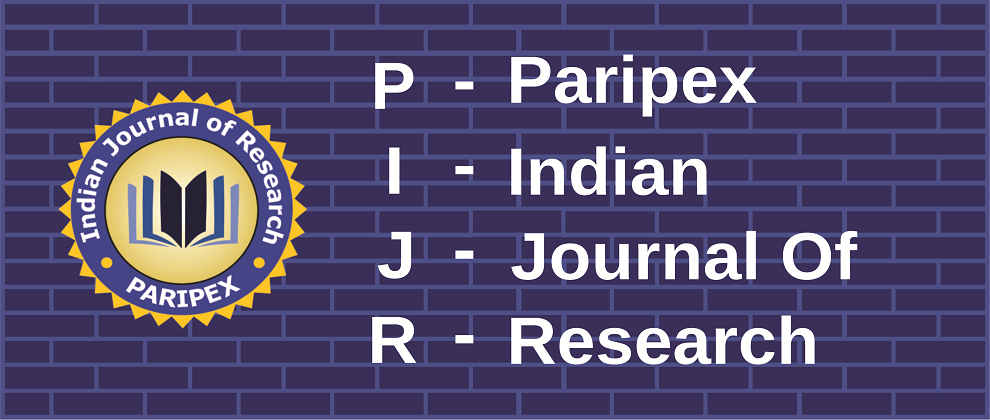Volume : IX, Issue : VIII, August - 2020
Assess the effectiveness of interpretive educative session in improving the knowledge on interpretation regarding arterial blood gas values among critical care nurses
Ms. Surbhi Mokhale
Abstract :
Background of the study Arterial blood gas (ABG) analysis is one of the most basic tests of pulmonary function, performed routinely in hospitals throughout the world. The proper application of the concepts of acid base imbalance will help the health care provider not only to follow the progress of the patient but also to evaluate the effectiveness of care being provided. Accurate assessment of the relationship between abnormal blood gas findings and a patient’s overall clinical condition is a common challenge for critical care nurses. To meet this challenge, nurses must understand the mechanisms underlying acid–base balance and the common causes of acid–base imbalance. Considering this major problem, a study was carried out with a purpose of identifying the effectiveness of interpretive educative session in improving the knowledge on interpretation regarding arterial blood gas values among critical care nurses in a selected hospital at Indore. AIM:– To assess the effectiveness of interpretive educative session in improving the knowledge on interpretation regarding arterial blood gas values among critical care nurses in selected hospitals at Indore”. Objectives of the study The objectives of the study are to: 1. assess the knowledge on interpretation regarding arterial blood gas values among critical care nurses using an interpretive questionnaire. 2. assess the effectiveness of interpretive educative session in improving the knowledge on interpretation regarding arterial blood gas values among critical care nurses. 3. find the association between knowledge on interpretation regarding arterial blood gas values among critical care nurses and selected base line variables. METHODOLOGY: An evaluative approach with pre–experimental one group pre–test post–test design was used for this study. The study was carried out in a selected hospital at Mangalore. The samples, 30 critical care nurses, were selected from the various critical care units by non–probability purposive sampling technique. The data collection was done from 26/09/19 to 02/10/19 after obtaining permission and consent. Pre–test was conducted by administering a structured interpretive questionnaire, and an interpretive educative session on ABG values was given on the same day. Post–test was conducted on 7th day using the same structured interpretive questionnaire. The data was analyzed using descriptive and inferential statistics. Paired ‘t’ test was used to find the effectiveness of interpretive educative session and chi–square test was used to find the association of pre–test knowledge score on interpretation with selected baseline variables. Results The findings showed that the mean post–test knowledge score on interpretation (21.30) was higher than the mean pre–test knowledge score on interpretation (9.00). The mean percentage knowledge score on interpretation of pre–test was higher in the area of respiratory acidosis with mean percentage of 45.83% and lower in the area of metabolic alkalosis (30%). Whereas the mean percentage knowledge score on interpretation of post–test was maximum in the area of respiratory acidosis (95%) and lower in the area of respiratory alkalosis (80.83%). The mean difference between post–test and pre–test knowledge score on interpretation was highly significant (t29 = 14.20) at 0.05 level of significance. Hence the null hypothesis was rejected and research hypothesis was accepted, indicating that the interpretive educative session was an effective method of increasing the knowledge on interpretation of the critical care nurses, regarding arterial blood gas values. It was also found that there was no significant association between pre–test knowledge score on interpretation with selected baseline variables such as age (χ21=0.00), gender (χ22=0.00), professional qualification (χ23=0.234), duration of clinical experience (χ24=0.14), area of clinical experience (χ25=3.34), attended any in–service education or CNE on ABG (χ26=0.00), at 0.05 level of significance.
Keywords :
Article:
Download PDF
DOI : https://www.doi.org/10.36106/paripex
Cite This Article:
ASSESS THE EFFECTIVENESS OF INTERPRETIVE EDUCATIVE SESSION IN IMPROVING THE KNOWLEDGE ON INTERPRETATION REGARDING ARTERIAL BLOOD GAS VALUES AMONG CRITICAL CARE NURSES, Ms.Surbhi Mokhale PARIPEX-INDIAN JOURNAL OF RESEARCH : Volume-9 | Issue-8 | August-2020
Number of Downloads : 138
References :
ASSESS THE EFFECTIVENESS OF INTERPRETIVE EDUCATIVE SESSION IN IMPROVING THE KNOWLEDGE ON INTERPRETATION REGARDING ARTERIAL BLOOD GAS VALUES AMONG CRITICAL CARE NURSES, Ms.Surbhi Mokhale PARIPEX-INDIAN JOURNAL OF RESEARCH : Volume-9 | Issue-8 | August-2020


 MENU
MENU

 MENU
MENU






